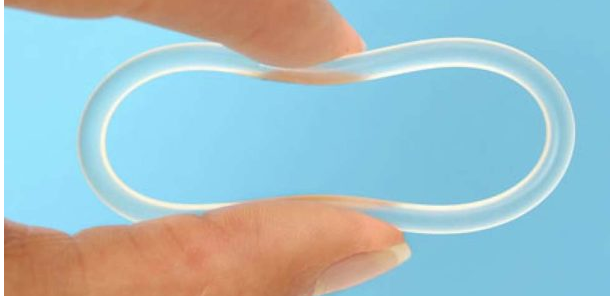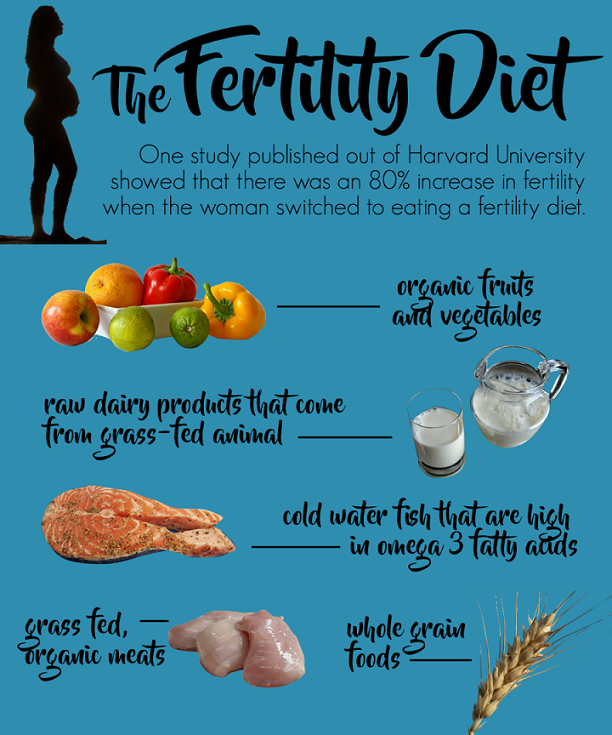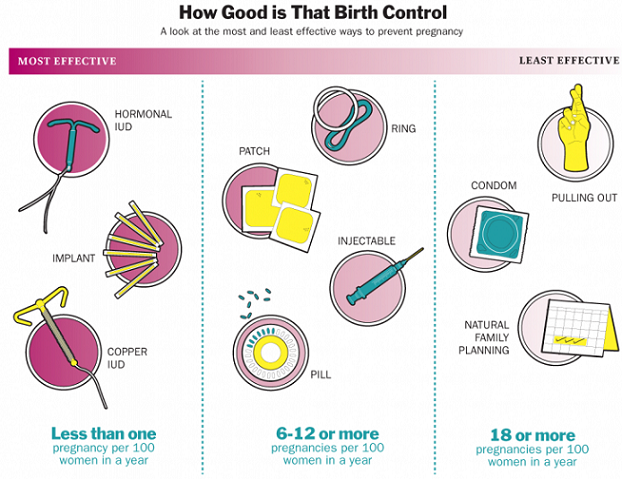![]() The information provided by our expert should not constitute a diagnosis of your condition. Always consult a medical practitioner or healthcare provider for a formal diagnosis. By making use of this content, you agree that ConceiveEasy and the expert assume no liability.
The information provided by our expert should not constitute a diagnosis of your condition. Always consult a medical practitioner or healthcare provider for a formal diagnosis. By making use of this content, you agree that ConceiveEasy and the expert assume no liability.
Have you been on birth control for a long time and you are now ready to get off of it because you are ready to start a family? Firstly, congratulations on your decision to create a family- or add to your family if you already have another child or other kids. Secondly, you are probably wondering what it takes to conceive after getting off of birth control, including how long it takes. Claim Your 20 Free Pregnancy Tests – Click Here
There is no clear-cut answer to that question because it all depends on the kind of birth control you have used. If you have only used barrier types of birth control, like the condom, male or female or both, cervical cap, spermicidal foam or gel, suppository, sponge, film, a non-hormonal IUD or a diaphragm, then you can technically get pregnant right away after ceasing to use them.
And you are probably well aware of that since it is common sense to know that these barriers are used to reduce the risk of a pregnancy happening, as you probably know that they are not foolproof. Condoms can break. There could be cuts in the diaphragm which will create holes and allow sperm to enter the uterus, especially if the diaphragm is old. Additionally, if you have used non-hormonal copper IUDs (and even hormonal IUDs), they could easily be expelled without you even knowing. This could happen by going to the bathroom without realizing they slip out or they may end up dislodged. Either of those scenarios you can see will not protect you from getting pregnant.
That means when it comes to any kind of removal of barrier-type only forms of birth control, pregnancy can pretty much happen at any time.
However, if you have been taking hormonal birth control pills or injections, then you do have more of a reason to be concerned about how long it would take for you to get pregnant and what it would take in order for you to conceive.
Let’s take a look at the various hormonal-based birth control methods and see how long you would expect to get pregnant after ceasing them.

Birth control pills contain both estrogen and progestin, a synthetic form of progesterone which will reduce the thickness of the endometrium so if a pregnancy were to happen, it doesn’t implant. These hormones also increase the mucus around the egg so it cannot be penetrated and creates incredibly thick cervical mucus as well so the sperm cannot get through it.
However, the pill only works if you take it at the same time every day and don’t miss a dose, which includes the sugar pills as well.
You technically could get pregnant during the same cycle if you were to forget taking the pill on a given day which would wreak havoc to your hormonal levels. This could mean your fertility could return right away.
However, in most cases, it doesn’t and you can technically get pregnant the cycle after you stop taking the birth control pills. For some women, it can take as long as 3 months after ceasing the pill. Therefore, on average, you could potentially conceive 1 to 3 months after taking the last dosage of your pill. It all depends on the woman.

Just like the birth control pill, the patch contains estrogen and progestin, and as soon as it is removed, you can conceive between 1-3 months after. There is no concrete evidence on how long it specifically takes to conceive after the patch is removed, but experts have said it is likely between 1 to 3 months, similar to being off the birth control pill.

The rings also contain both estrogen and progestin which have the same effect on your body like the pill. Experts don’t yet know how long it would specifically take to conceive after the rings are removed, however, they believe the timeframe to conceive is similar to the pill and the patch.


The mini-pill may be a preferred method of birth control for women because it is a progestin-only form of birth control. There is no estrogen which means fewer side effects and this is why many women prefer the mini-pill over the birth control pill or other forms of contraceptives that contain and release estrogen.
However, after ceasing the mini-pill, experts believe that women can get pregnant within 6 months of taking the last dosage. It can be as long as 12 months as well, depending on the woman.

Hormonal IUDs release progestin and as soon as they are removed, fertility can resume a cycle after but it can take between 6 months to a year for conception to happen. However, there have been cases of hormonal IUD’s becoming dislodged or being expelled without the woman knowing until finding out that she is pregnant! Therefore, pregnancy can happen immediately after removal as well. Again, it depends on the woman.

If you have been taking Depo-Provera or the Depo-shot, which is a progestin shot that you receive every 12 weeks, pregnancy can occur 3 to 18 months after. The longer you have been taking the injection, the more progestin is in your system which means that the longer it will take you to get pregnant. If you have not taken this injectable for that long, like if it has been less than a year, then it may not take you as long to conceive.
Therefore, you can see there is no clear-cut answer as to how long it will take you to get pregnant after going off of birth control. You can see it depends on the kind of contraceptive, as to how quickly your body will resume to being fertile again which is up to your body, not your mind!
Therefore, if you have been only using barrier contraceptives, pregnancy can happen at any time after ceasing their use. Hormonal contraceptives may delay your ability to conceive somewhat, depending on what it is. However, with the Depo-shot, you may not be fertile for over a year especially if you have taken the injection for quite a long time.
Regardless of what type of contraceptive you have been using and when you are ready to start trying for a baby, you absolutely need to go to your doctor because there are steps you must take regardless of how long your fertility returns. You need to see your doctor in order to have a general check-up and to have your weight, blood pressure, blood sugar levels and cholesterol assessed. If any of these need to change whether you are overweight or underweight, you will be told this as well.
That means while you are waiting for your fertility to come back after coming off of hormonal-related birth control, you need to take charge to make sure you are in good health in order to help your body be ready to carry a healthy pregnancy.
Unfortunately, there is nothing you can do in order to speed up your fertility as that will be completely up to your body as to when it resumes. However, there are steps you can take in the meantime to support it for when it does return. That is why the first thing you need to do is to start changing your lifestyle.

You probably have heard of the fertility diet, but once you are off of contraceptives and you are waiting for your body to resume to normal levels if the kind of birth control you have used were hormonal, you need to start ditching or limiting foods that don’t support your fertility and start eating foods that do.


Trans fats and refined carbohydrates: These include fast food, pastries, candies, potato chips, cookies, white bread, white rice, white crackers, cheese curls, and processed foods. These foods will impede your fertility because they keep your insulin levels up and are culprits for weight gain which will also hurt your fertility. They are best to be avoided however if you treat yourself to a candy bar or a Big Mac only once a week, then it will not make an impact.
Coffee: It is known that coffee is not recommended to drink while you are trying to conceive, but you don’t need to completely cut it out. You need to cut it down so therefore you can have 1 cup of java a day instead of having 5!
Alcohol: Whenever you are trying to conceive, alcohol must be avoided. There is no research that indicates a small amount of booze will impact your fertility but it is not known if there are any safe amounts of booze that you can consume if you were to become pregnant. Therefore, whenever you are trying to conceive, stay away from the booze! The same goes for cigarettes and drugs!

Complex carbohydrates: These include fruits, vegetables, yams, anything that is whole grain, and legumes. These will provide you the energy you need and gives you the vitamins and minerals you need without having an impact on your blood sugar and insulin levels.
Healthy fats: These include full-fat dairy, fish, nuts, seeds, olive and canola oil, and avocados. These are important for your hormonal development and regulation.

Proteins: These include eggs, fish (avoid tuna and shark meat as they are high in mercury levels), nuts, seeds, legumes, poultry, lean pork and lean beef and vegetable protein as you need it for your own muscle and tissue development.
Take prenatal vitamins as well as folic acid: It is never too early to take these vitamins and folic acid will help reduce the risk of your unborn baby developing neural tube defects.
These are the foods to start eating while trying to get pregnant and while you are waiting for your fertility to come back. You will also need to start charting your cycles.

BBT Temperature: While you are waiting for your fertility to resume, you will want to take your body basal temperature each morning with a BBT thermometer before you move much, and a slight rise in temperature will show that you have ovulated and be sure to mark it down. Do this for several months to see if there is a pattern of ovulation. If you are ovulating and this has indicated that, then you are free to start trying.
Cervical mucus changes: You will want to check your cervical mucus texture after your period ends. It will be dry and scant after your cycle but as your cycle progresses, the mucus will be cloudy and sticky. Once you are ready to ovulate it will be abundant and have a texture of raw egg-whites and that when you know you are ovulating.
Ovulation Predictor Kits: It is best to invest in these when you know you are already ovulating, as it will measure the luteinizing hormone level if you suspect ovulation is near. That will pinpoint the timing even better.
You may find that ovulation is not happening for a while after stopping hormonal based birth control. This is one big reason why it is important to chart your cycles because you will know exactly when your fertility resumes.


Kickstart your fertility by taking a fertility supplement. You can try a fertility blend like ConceiveEasy that has a pre-measured amount of the most potent fertility vitamins, herbs and minerals in a once-a-day supplement. Help restore your fertiilty levels, help jumpstart ovulation that has stalled, and help increase your fertile cervical mucus. You can start these immediately, so after getting off birth control, you can help to get a jump on priming your body for maximum chances of conceiving as soon as possible.

While you are eating foods that are fertility friendly, charting your cycles, and taking fertility supplements, you must also learn to not allow stress to get to you by taking up meditation, yoga and enjoying leisure activities that will help you unwind. It is crucial for your body and for your fertility. You will also want to make sure you receive moderate exercise like taking a half hour brisk walk 5 days a week. Don’t exercise too much or too little. If you take these steps after getting off of hormonal-based contraceptives, then you will get pregnant. Best of luck!











Comments